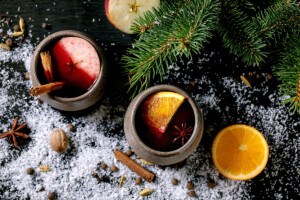It Came from the Swamp

Jason Albus is bringing South Carolina’s marshland cuisine to Jamaica Plain. / Photograph by Jesse Burke
Jason Albus wants to clear up a misconception about southern cooking. Particularly “Lowcountry” style, a variant specific to the coastal swamplands of his native South Carolina and the theme of his new J.P. eatery, the Frogmore. For starters, he says, it’s a whole lot healthier than folks up here in Yankee territory imagine. As a fellow Palmetto Stater (Albus grew up in Spartanburg; me, Columbia), I’m happy to let him set the record straight about our shared culinary heritage. And frankly, I’m a little curious myself.
“Everyone has this perception of southern food as not good for you, when in all actuality it’s very vegetable-driven, very grain-driven,” he says. “Not a lot of fat, or lard, like you’d think there would be. Obviously, pork is a central ingredient, but it’s not the focal point. It’s more about fresh produce, rice, and seafood—local blue crab, oysters, shrimp.” Pescatarian spa grub with a drawl, you might say.
It’s when we drill down on menu specifics that things go south. “So we’re doing this pimiento-cheese croquette.” So, sort of a…light beignet of mayonnaise and cheddar? “Smoked ham-hock rillettes. Cornmeal-crusted catfish with hominy. Pork and beans, but not out of a can like you might think.” Uh-oh. “Ours uses crispy pork-belly confit and stewed beans. Oh, and a grilled rib-eye with pimiento-cheese butter.” Hmmm.
So maybe it isn’t exactly health food. But if Albus—who previously helmed Fairsted Kitchen—is overplaying his hand from a lean-cuisine perspective, he does have a point. The best of Boston’s remarkably strong southern cooking has always skewed unapologetically gut-busting: the barbecued fatty meats and biscuits at Sweet Cheeks, the ventricle-baiting tribute to regional junk food at State Park. Even places doing “non-stunt” takes—notably, the late and lamented Hungry Mother—have been ecumenical free-for-alls spanning Virginia, Texas, and beyond.
Albus, by contrast, has chosen to narrow his focus to the dishes typically found in coastal South Carolina and Georgia. Some strokes are broad: standards like the Frogmore’s namesake stew, she-crab soup, and Hoppin’ John (see below). Others are quieter inflections—the hominy with the catfish, the use of okra as a thickener, cameos by sorghum and grits. It’s a tightening of the lens reminiscent of that moment in the aughts when alert foodies renounced “Chinese” for Fujian and Sichuan.
Funny enough, Albus isn’t the only South Carolinian driving this particular micro-regional train. Are we on the verge of a Lowcountry moment? At Puritan and Company, chef de cuisine Alex Saenz (a Columbia boy) programs weekend specials straight out of the Lowcountry playbook, culminating in weekly “Southern Sundays,” with a full menu featuring shrimp and grits, black-eyed-pea hummus, and lemon-verbena-marinated fried chicken.
Albus is planning one, too, “a sort of traditional Sunday dinner at your grandmother’s house.” Do tell. “Fried Chicken Sundays, with white gravy, mashed potatoes, creamed corn, and…” he pauses, trailing off. Not to worry, Chef. The jig is up.
Vocab Lesson
Four wicked good Lowcountry dishes worth committing to memory, y’all.
Frogmore Stew
The Lowcountry answer to bouillabaisse, this “boil” features crab, shrimp, sausage, potatoes, and corn on the cob, simmered in an Old Bay–spiked broth.
Hoppin’ John
A rice-and-peas dish using black-eyed peas, enriched with pork in the form of bacon, ham hock, or fatback. John’s not-so-lame wife, Limpin’ Susan, replaces the peas with tomato and okra.
She-Crab Soup
This velvety bisque gets its luxurious consistency from crab stock, fino sherry, cream, hard-boiled egg yolks, and puréed rice, and its distinctive sherbety hue from bright-orange roe.
Grits
Oversize kernels of mature field corn are dried, soaked in lye, then milled to a coarse, polenta-like grain. They’re usually boiled in water, but milk is the Charlestonian way.


